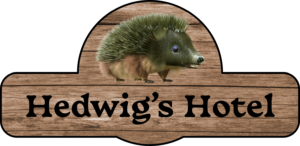Thorny Headed Worms
Thorny headed worms, also known as acanthocephalans, are a type of parasitic worm that can infect hedgehogs. These worms have a unique appearance, with a spiny proboscis at one end that they use to attach to the wall of the host's intestines.
The most common thorny headed worm affecting hedgehogs is Macracanthorhynchus hirudinaceus. These parasites typically inhabit the small intestine of the host animal, where they can cause various symptoms and health issues.
In hedgehogs, thorny headed worm infections can lead to symptoms such as abdominal pain, diarrhea, weight loss, and in severe cases, intestinal blockages or perforations. The spiny proboscis of the worms can irritate the intestinal lining, leading to inflammation and damage.
Diagnosis of thorny headed worm infection in hedgehogs usually involves a combination of clinical signs, fecal tests to detect the presence of worm eggs or larvae, and sometimes advanced imaging techniques like X-rays or ultrasound to visualize the parasites within the digestive tract.
Treatment typically involves deworming medications prescribed by a veterinarian, which are effective at eliminating the parasites. However, thorny headed worms can be challenging to treat because of their unique structure and attachment mechanism. Multiple treatments may be necessary to ensure all parasites are eradicated.
Prevention of thorny headed worm infections in hedgehogs involves minimizing exposure to environments where the intermediate hosts, typically insects such as beetles or cockroaches, are present. Keeping hedgehog enclosures clean and free from insects can help reduce the risk of infection. Additionally, regular deworming as recommended by a veterinarian can help prevent and control thorny headed worm infections in hedgehogs.



